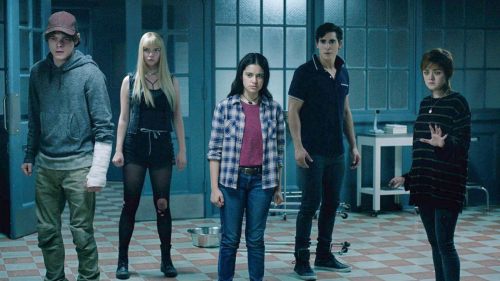FROZEN On Broadway Is Played-Safe Passable
How I felt about Frozen: The Broadway Musical depended a bit on how I felt about the original movie, now one of Disney’s most bankable franchises. I witnessed the movie's popularity in 2013, Disney’s excessive emphasis on the merch, the power ballad “Let It Go" playing on repeat, and now the teaser for Frozen 2. The Broadway vamp was as inevitable as the stage productions of Lion King and Aladdin. Famous for centralizing a subversive "True love found in sisterhood" theme that was new to Disney animated productions, Frozen on Broadway follows the same tune with new songs. For its validating and marketable message about acceptance and princesses who are as empowered as they are frail, I enjoyed the film even if its popish and whimsical ingredients can feel slapped together. The stage does its dutiful task of revisiting the tale with some fresh inspiration.
As it was in the 2013 movie that loosely adapted Hans Christian Andersen's The Snow Queen, the musical book follows two royal siblings in a Scandinavian-inspired land: the responsible heir-apparent Princess Elsa (Caissie Levy) and the sprightly Princess Anna (Patti Murin). Elsa happened to be born with magical ice powers, an ability kept secret from the kingdom. After a tragic childhood accident spurred by her powers, Elsa distances herself from her sister in hopes of taming her ice powers alone. The years of separation and their unexpected orphanhood take their toll on them both, with Elsa anxious about concealing her powers and Anna feeling lonely in an empty castle. But when Elsa is crowned as queen, a sisterly quarrel over Anna’s spontaneous engagement to a prince leads to Elsa outing her powers before their kingdom. The queen flees in shame, unaware she doomed her kingdom to an eternal winter. Anna dashes after Elsa through the blizzard, hoping to revive their lost sisterhood and restore summer
With Jennifer Lee reprising her scriptwriting with the stage show’s book, expect theatrical tweaks to the tale. The stage take has a mild maturation to appreciate without surrendering its child-appealing spirit. While retaining the Disney goofiness, much of the cartooniness is filtered by theatricality, such as converting the animated rock-trolls into humanoid folks. Though Olaf (Ryann Redmond) the comedy-relief talking snowman, with his cartoony puppet designed to the tee as his bulgy-eyed movie counterpart, is cloying to the matured design.
Since the production has a longer running time than the film, Kristen Anderson-Lopez and Robert Lopez’s new songs take advantage of the breathing space to unravel the characters’ interior souls, such as Elsa’s trepidation in “Dangerous to Dream” and Anna ruminating on “True Love.” The new numbers did not smash my expectations, all with the exception of the showstopping "Monster,” where the terrified queen contemplates her snowstorm, both literal and psychological, as she summons icicles to delay the mob.
An upbeat cast leads Frozen. Murin furnishes her own quirky flair to Princess Anna, invigorating the iconic princess with venereal energy that feels refreshing for a Disney princess experimenting with the concept of true love. Levy feels right as Queen Elsa, who over-stiffs herself while desiring tenderness. For a role that requires belting, Levy provides Elsa the most power in her softer ballads. Noah J. Ricketts as Kristoff is fun as an everyman caught into an adventure and romance he didn't intend to fall into. Despite more time and songs spent with the Prince Hans character, the prince's inevitable wicked reveal still feels contrived as it was in the film, though his actor Joe Carroll adds a reserved disconcerting vibe from the start. With a similar vocal cadence to Murin’s, actress Redmond playing and puppeteering its male comedy relief Olaf made a thematic addition of accentuating the animated snowman as a product of Anna and Elsa’s bygone sisterhood.
The stage is not as oversaturated and exhaustive with spectacle as Aladdin on Broadway, but the magic does seem oddly restrained. Elsa's powers can over-rely on projections, and this ends up sadly diluting Elsa’s illustrious emotional turn in “Let It Go.” The projections work best when they synchronize with solid effects like popping icicles, thus why “Monster” worked better emotionally than “Let It Go.” I did marvel at some of the shrewd theatrical translation, such as the pivotal sequence where the white-clad ensemble embodies the storm pulling Anna.
Frozen reiterates its themes of self-acceptance, the consequences of emotional distance, the drawbacks of opening too soon, and the power of sisterly love. These thematic dimensions are enough for satisfactory family entertainment even if the execution is short of soaring resonance. By the "Let it Go" reprise finale, I wished I felt a little warmer. Frozen on Broadway is entertaining but short of the enchantment it deserves.
Frozen is currently playing at the St. James Theatre at 246 W 44th St, New York, NY 10036.



